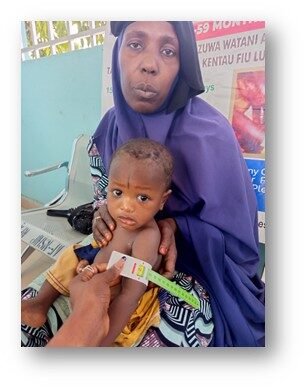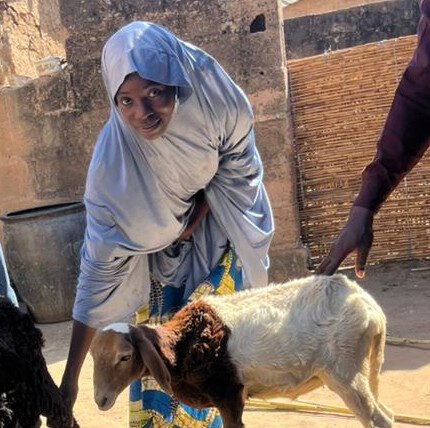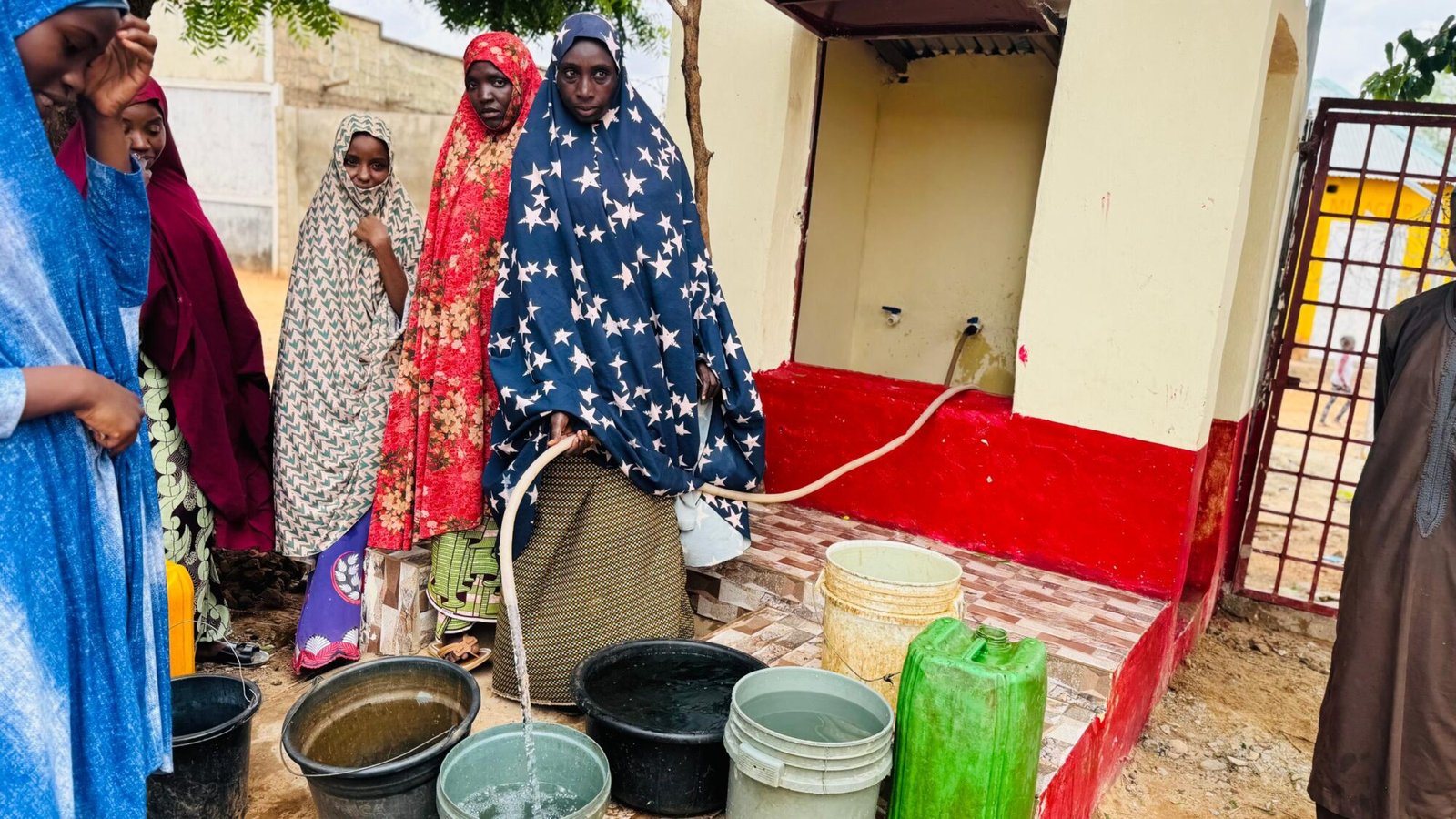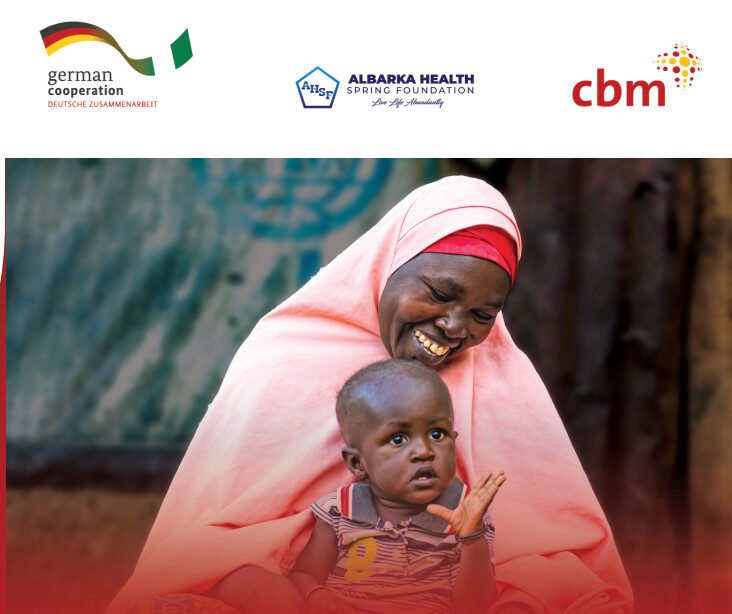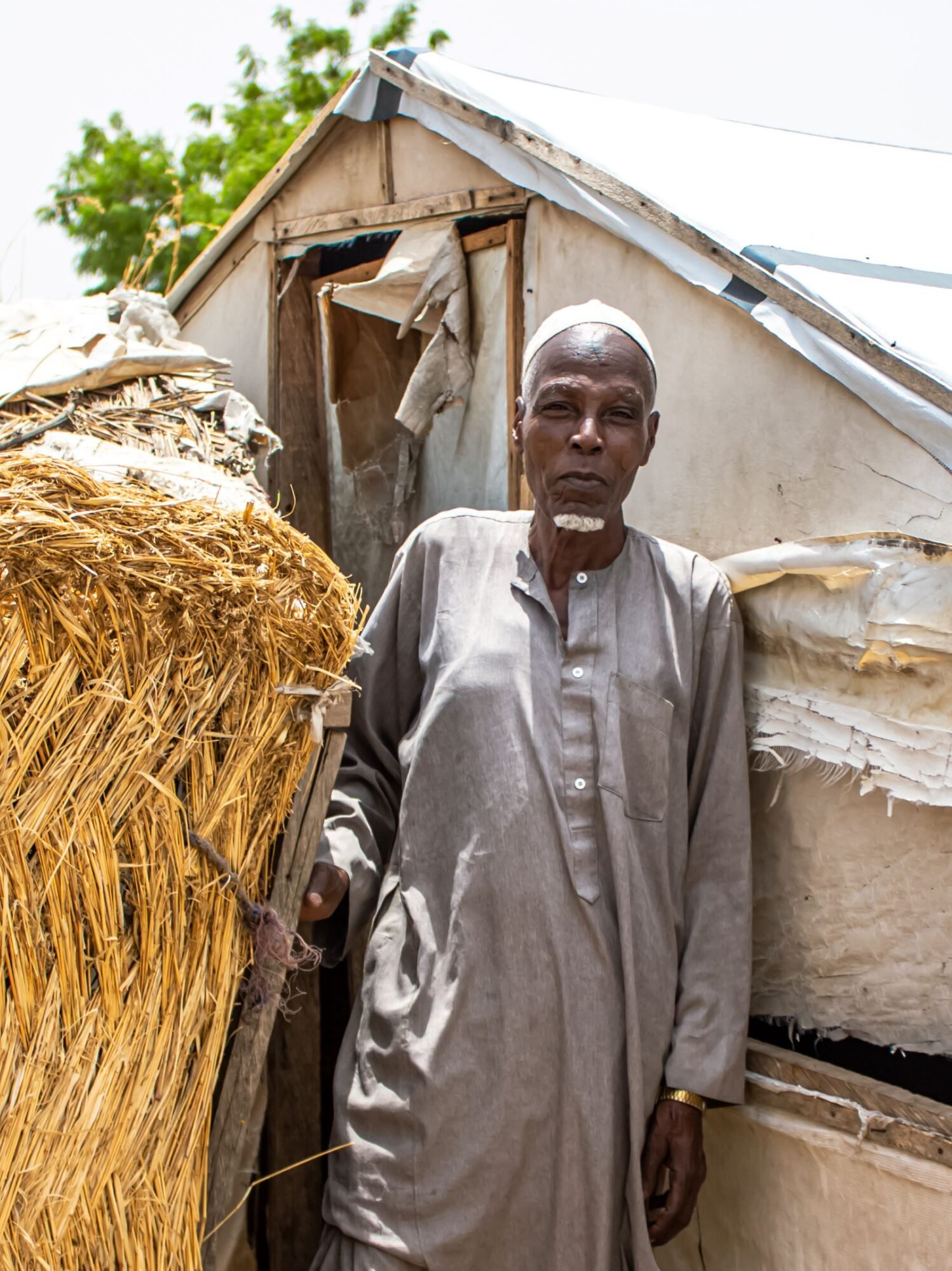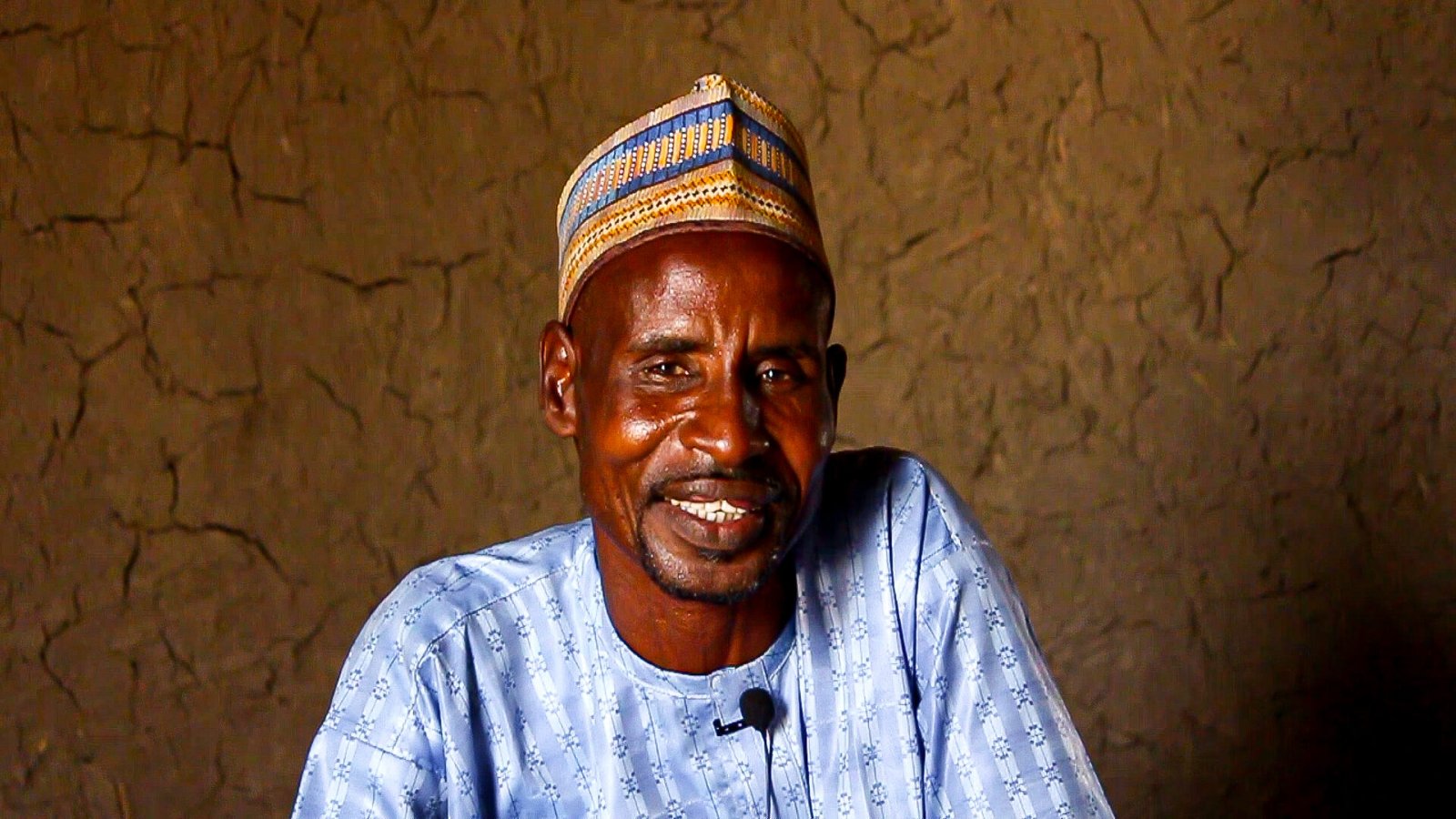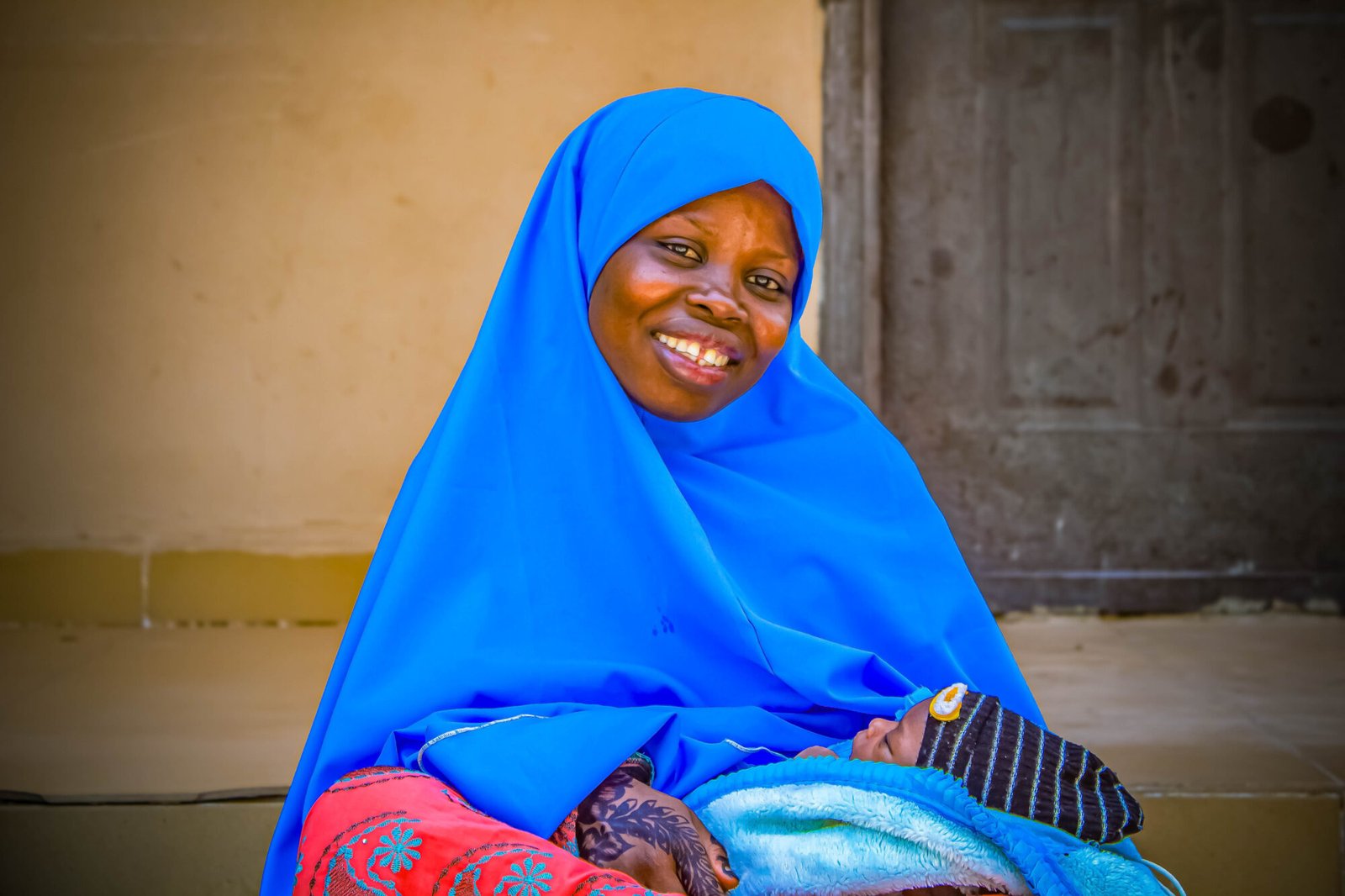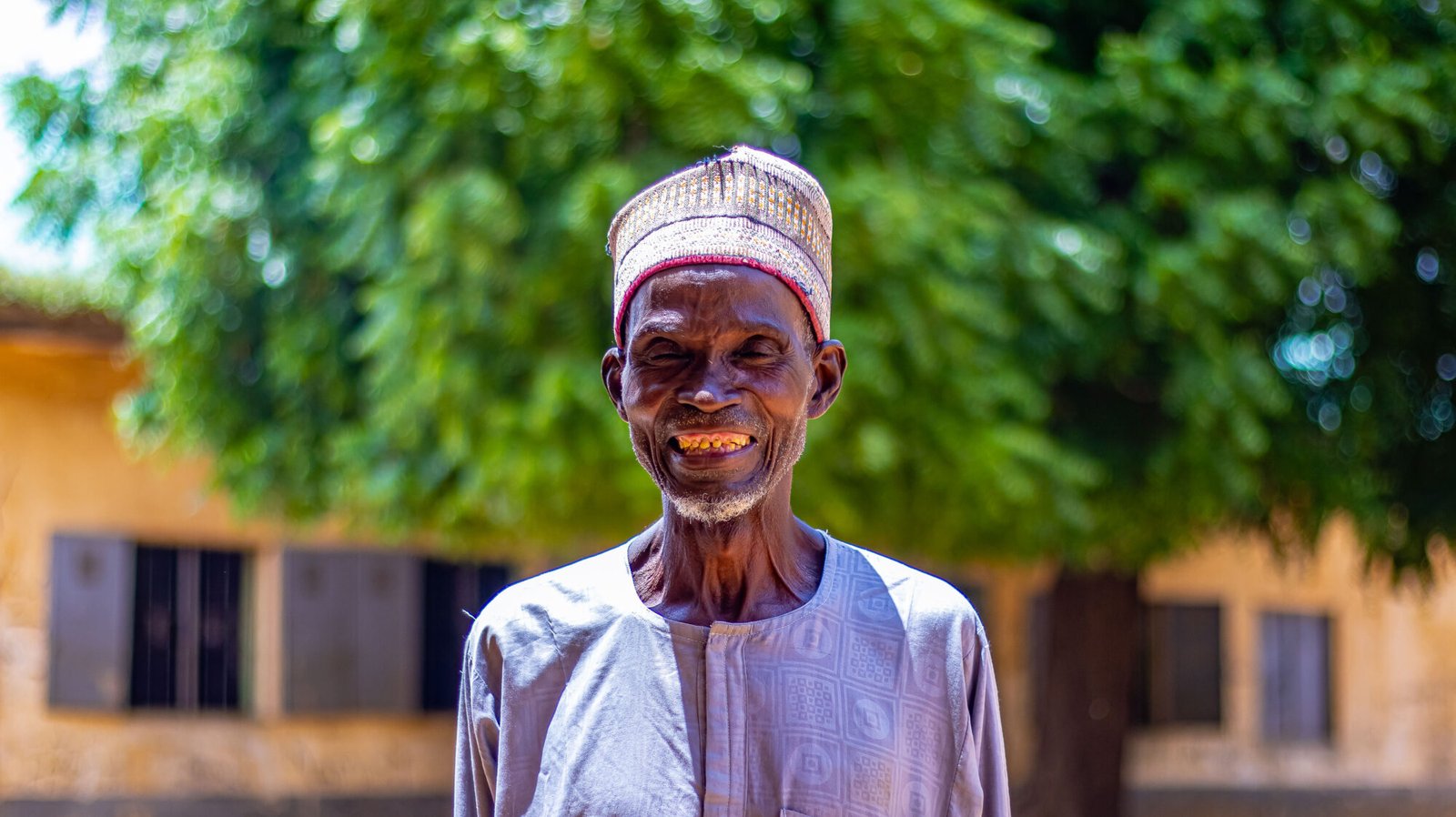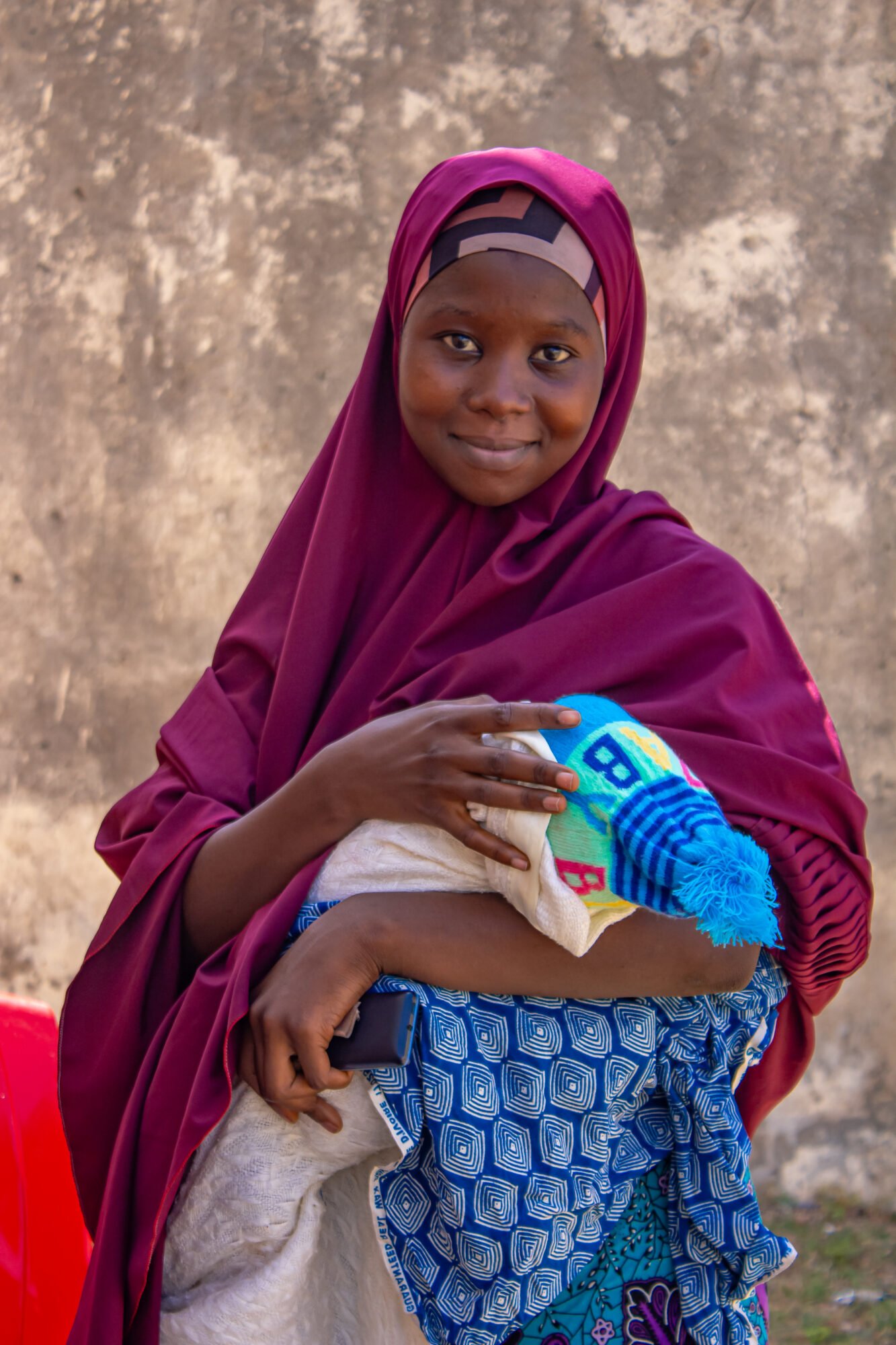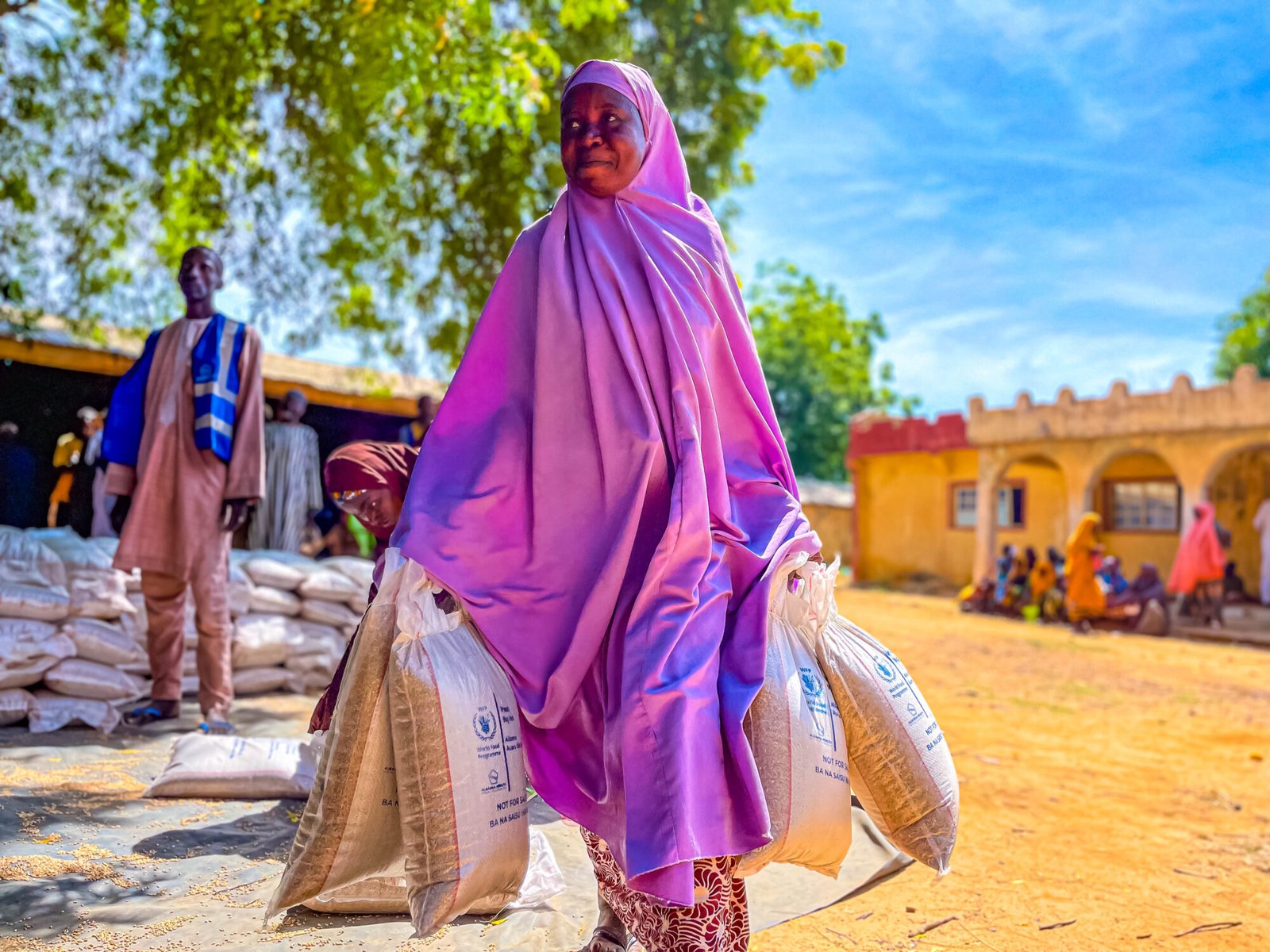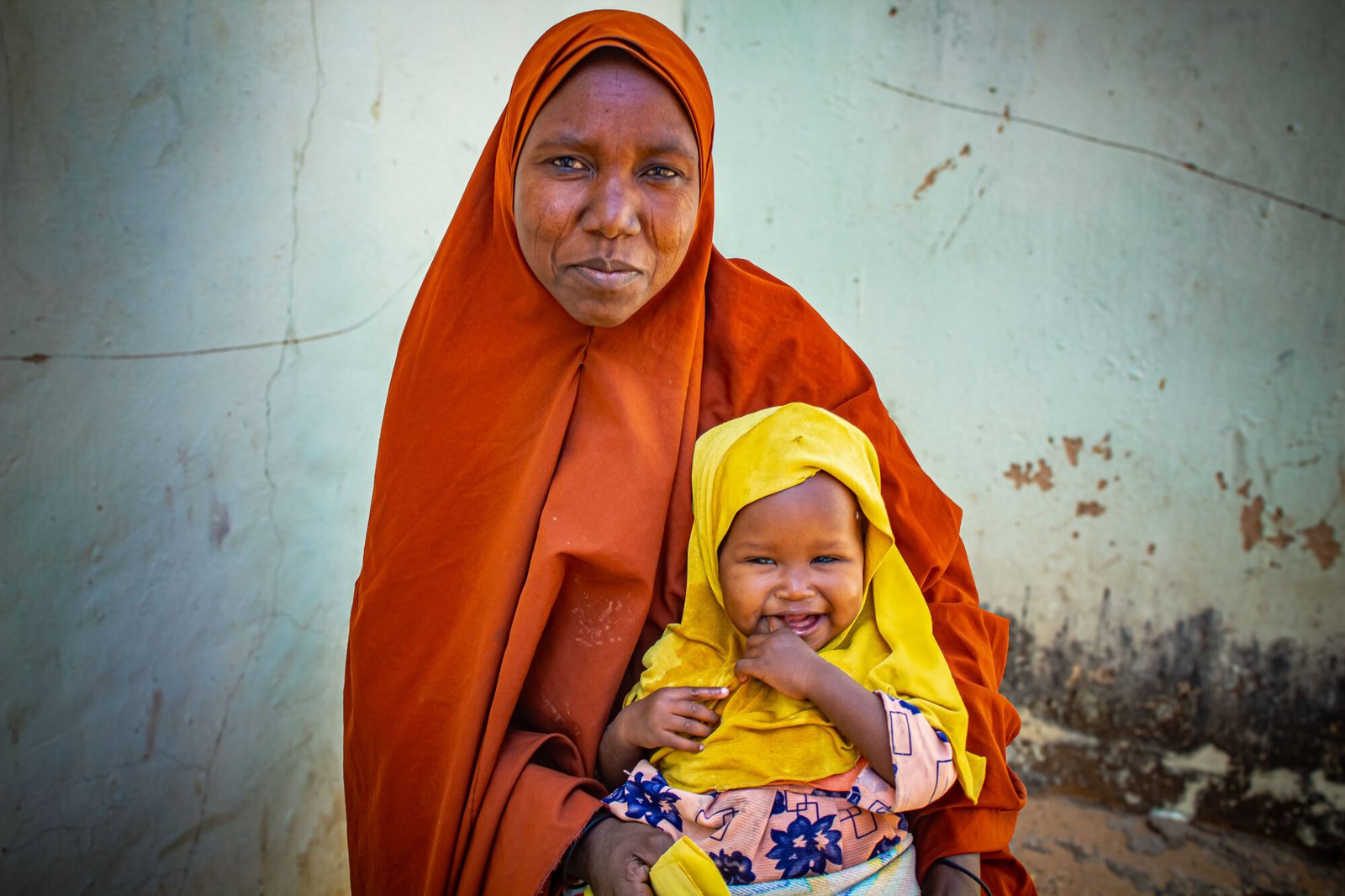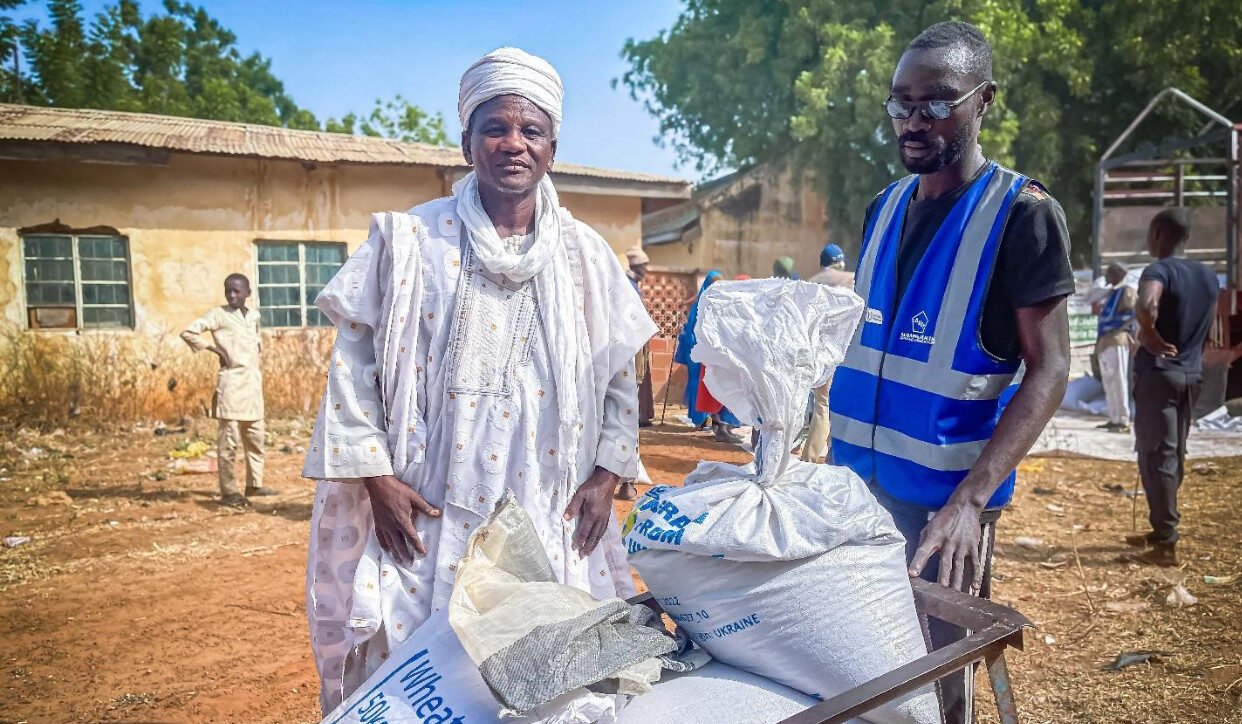In Mabera Mujaya, a community in Sokoto South Local Government Area (LGA), Sokoto State, lives Fatima Aliyu, a 40-year-old mother of five. For years, Fatima struggled to sustain her family through small-scale farming. With the rising cost of agricultural inputs, accessing quality farm tools and fertilizers remained beyond her reach.
“For a long time, buying good farm tools was simply not an option because the prices were far beyond what I could afford,” Fatima shared. “As a small-scale farmer, I had to rely on traditional methods like using cattle dung and poultry manure as fertilizer. I managed as best as I could to sustain myself and my children.”
Through the Farmers’ Input Redemption Program, supported by Christian Blind Mission (CBM) International and implemented by Albarka Health Spring Foundation (AHSF) with support from the Federal Ministry for Economic Cooperation and Development, Germany (BMZ), Fatima’s situation began to change.
She received essential farm inputs, including fertilizers, improved seeds (rice, groundnuts, and beans), pesticides, herbicides, and a knapsack sprayer, alongside training on modern farming practices. This support has not only improved her productivity but also rekindled her confidence and sense of purpose.
“CBM and AHSF didn’t just give us farm tools,” Fatima said. “They opened our eyes to new farming methods and helped us understand how climate change affects our work. With the knowledge and support I’ve received, I now have the confidence to increase my yield and improve my children’s lives.”
This intervention is part of a five-year project (2024–2028) implemented across four LGAs in Sokoto State, Dange-Shuni, Sokoto South, Wurno, and Rabah. The project focuses on Food Security and Livelihood (FSL), Water, Sanitation and Hygiene (WASH), Health, and Mental Health and Psychosocial Support (MHPSS), including Gender-Based Violence (GBV) prevention. It aims to enhance the resilience of conflict-affected and vulnerable populations, including persons with disabilities, by improving access to inclusive protection and livelihood services.
In the first phase of the activity, 499 farmers, including 106 persons with disabilities, were reached across Sokoto State, a deliberate effort to promote inclusivity and equal opportunity in agricultural empowerment.
“I am inspired by this transformation and hopeful for what lies ahead, thanks to the knowledge and resources made available to farmers like me,” Fatima said with a smile.
This project is helping smallholder farmers grow not just crops, but also confidence, independence, and hope. Thanks to BMZ, CBM International, and AHSF for this timely intervention, one that continues to strengthen livelihoods, promote inclusion, and build a more food-secure future for vulnerable families in Sokoto State.

